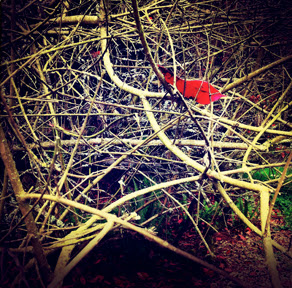(A short piece on Leftovers published under reader's submissions in The Rumpus, one of the top literary sites in the world.)
One would have had to lead as sheltered a childhood as Gautama Buddha to be oblivious to deprivation while growing up in India. So, it shouldn’t come as a surprise when I say leftovers aren’t a problem in my family. We finish what is on our plates and anything leftover is the next meal. But then we never start with more than we can consume. My mother, who never has to worry about leftovers, lives in a city that is thirteen hours “ahead” and a twenty-four-hour flight away from me. She, one could safely assume, has vastly different concerns. Grandchildren, weddings, rising prices, and the corporate-political nexus top the list. (Indians take pride in their general knowledge.) Maybe people and their concerns, despite geography and philosophy, aren’t so different after all.
Five years, four countries, three continents, and I am the one who has become most concerned with leftovers—the something that remains, that which is not used. What is left behind when we have established and dealt with how different we all are? What would Americans talk about if all pop cultural references were erased from their collective sub-conscience? Yes, imagine, not a word about or related to Star Wars. That has been my prime focus for the past year here. Depending on the company I am in, for example, at the local co-operative or among urban professionals, the answer ranges from very little to way too much.
My other preoccupation has been the things that are in surplus—things that are still left over when everyone has taken up their share or more. The one thing that seems to be inexhaustible, no matter how hard we try to expend (or ignore) it, is the kindness of strangers. Despite barriers of language and nationality it somehow keeps showing up. From the interiors of India to the shores of the Pacific Ocean there seems to be no getting over it.
That leaves us with the one other issue that dominated November but remains unresolved. How to cope with your family on Thanksgiving. On seeing all the articles one thought kept coming back: “If a human disagrees with you, let him live. In a hundred billion galaxies you will not find another.” Carl Sagan said that. At one point in time I used to think all Americans would be like him. All that is leftover from that time are some words.
One would have had to lead as sheltered a childhood as Gautama Buddha to be oblivious to deprivation while growing up in India. So, it shouldn’t come as a surprise when I say leftovers aren’t a problem in my family. We finish what is on our plates and anything leftover is the next meal. But then we never start with more than we can consume. My mother, who never has to worry about leftovers, lives in a city that is thirteen hours “ahead” and a twenty-four-hour flight away from me. She, one could safely assume, has vastly different concerns. Grandchildren, weddings, rising prices, and the corporate-political nexus top the list. (Indians take pride in their general knowledge.) Maybe people and their concerns, despite geography and philosophy, aren’t so different after all.
Five years, four countries, three continents, and I am the one who has become most concerned with leftovers—the something that remains, that which is not used. What is left behind when we have established and dealt with how different we all are? What would Americans talk about if all pop cultural references were erased from their collective sub-conscience? Yes, imagine, not a word about or related to Star Wars. That has been my prime focus for the past year here. Depending on the company I am in, for example, at the local co-operative or among urban professionals, the answer ranges from very little to way too much.
My other preoccupation has been the things that are in surplus—things that are still left over when everyone has taken up their share or more. The one thing that seems to be inexhaustible, no matter how hard we try to expend (or ignore) it, is the kindness of strangers. Despite barriers of language and nationality it somehow keeps showing up. From the interiors of India to the shores of the Pacific Ocean there seems to be no getting over it.
That leaves us with the one other issue that dominated November but remains unresolved. How to cope with your family on Thanksgiving. On seeing all the articles one thought kept coming back: “If a human disagrees with you, let him live. In a hundred billion galaxies you will not find another.” Carl Sagan said that. At one point in time I used to think all Americans would be like him. All that is leftover from that time are some words.






















































